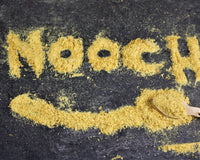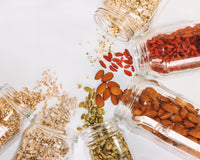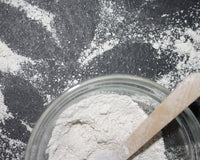We all know by now that eating too much salt can be bad for you. A diet that is high in salt can lead to an increase in blood sugar, which in turn can cause a higher risk of a stroke, kidney problems and heart disease.
However, not getting enough salt can also be detrimental to your health. Not only does it add some flavour to your food, but the salt/water ratio is vital for the metabolic rate in our bodies.
According to the NHS, adults should not exceed more than 6g of salt per day (2.4g sodium), which is approximately 1 teaspoon. So, if you are looking to add any salts to your diet, make sure to do so in moderation and stick to the daily recommended intake.
Today, we’re taking you through our edible salt range here at Wholefood Earth and explaining the health benefits of each type of salt.
Sea Salt
If you’re looking for a replacement for your trusty table salt - look no further than Sea Salt!
The term sea salt refers to salt which is produced by the evaporation of ocean water or water from saltwater lakes. Due to it’s minimal processing, it contains important minerals, including potassium, iron, and calcium. This is one of the reasons it may be considered nutritionally superior to table salt, which in comparison, is heavily ground and therefore had many of its nutrients removed.
In general, salt is essential for maintaining adequate hydration levels in the body. As sodium plays a vital role in keeping this balance, not getting enough of it can cause dehydration, especially during high-intensity workouts. It is imperative to sustain the electrolyte balance to aid in the smooth functioning of the organs and nervous system.
Himalayan Salt
Pink Himalayan Salt is often touted as the healthiest type of salt available – and with good reason! As Himalayan salt originates from the ocean, it contains many of the same micronutrients as sea salt. However, due to it being insulated from the ongoing pollution of the oceans, and the fact it is less processed than other salt extracted from the ocean, means it has far less contamination.
It has been claimed to be one of the purest forms of salt available, and reportedly contains more than 80 trace minerals that are required for everyday health. These minerals are what give the salt it’s unique pinkish hue.
Due to Himalayan salt containing anti-inflammatory properties, it can be used to help fight throat infections by reducing any swelling in the throat. Dissolving half a teaspoon in warm water and then gargling can help calm the swelling and soothes any pain and discomfort. Its anti-inflammatory properties are also helpful for joint pain and respiratory issues.
While pink Himalayan salt has several dietary uses for humans, it is also a supplementary requirement for certain animals. Our Himalayan Salt Lick is perfect for horses, cows and other cattle to supplement their daily salt intake.
Kala Namak
Kala Namak, also known as black salt or Himalayan black salt, is a form of rock salt mainly found in the Himalayas of Nepal. Due to its volcanic origins, it has a high amount of sulphur compounds which contribute to its rather pungent smell and strong flavour. Kala Namak is described as tasting like egg, which makes it a great substitute for anyone on a vegan or plant-based diet wishing to recreate that eggy taste.
Kala Namak has antioxidant properties and surprisingly, contains low sodium levels. It is rich in important minerals such as iron, magnesium and calcium which are essential for healthy bodies. There are also significant amounts of potassium in Kala Namak, which is vital for your muscle performance and easing any muscle spasms.
Other health benefits include the reduction of heartburn and bloating along with other digestive issues. It helps restrict acid levels and reduces reflux, along with stimulating bile production in the liver. Just a pinch of salt can help reduce gas formation which in turn, limits bloating and flatulence.






